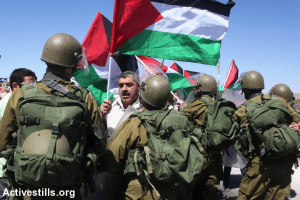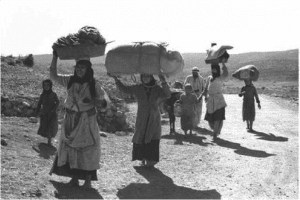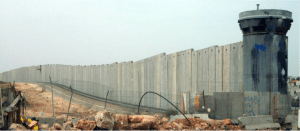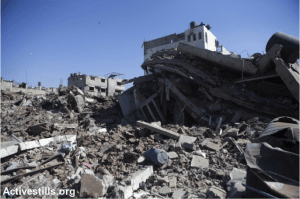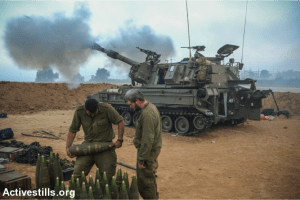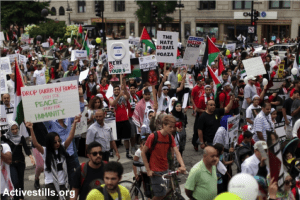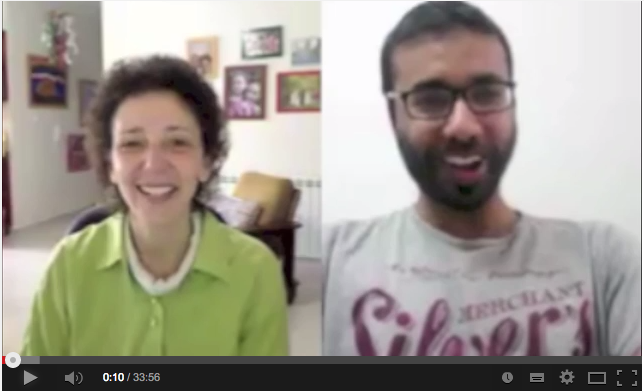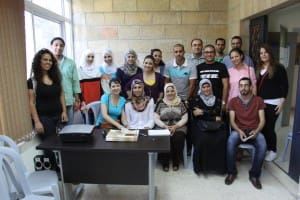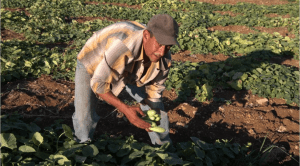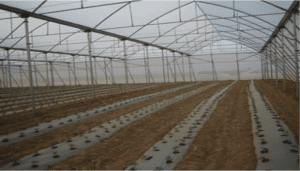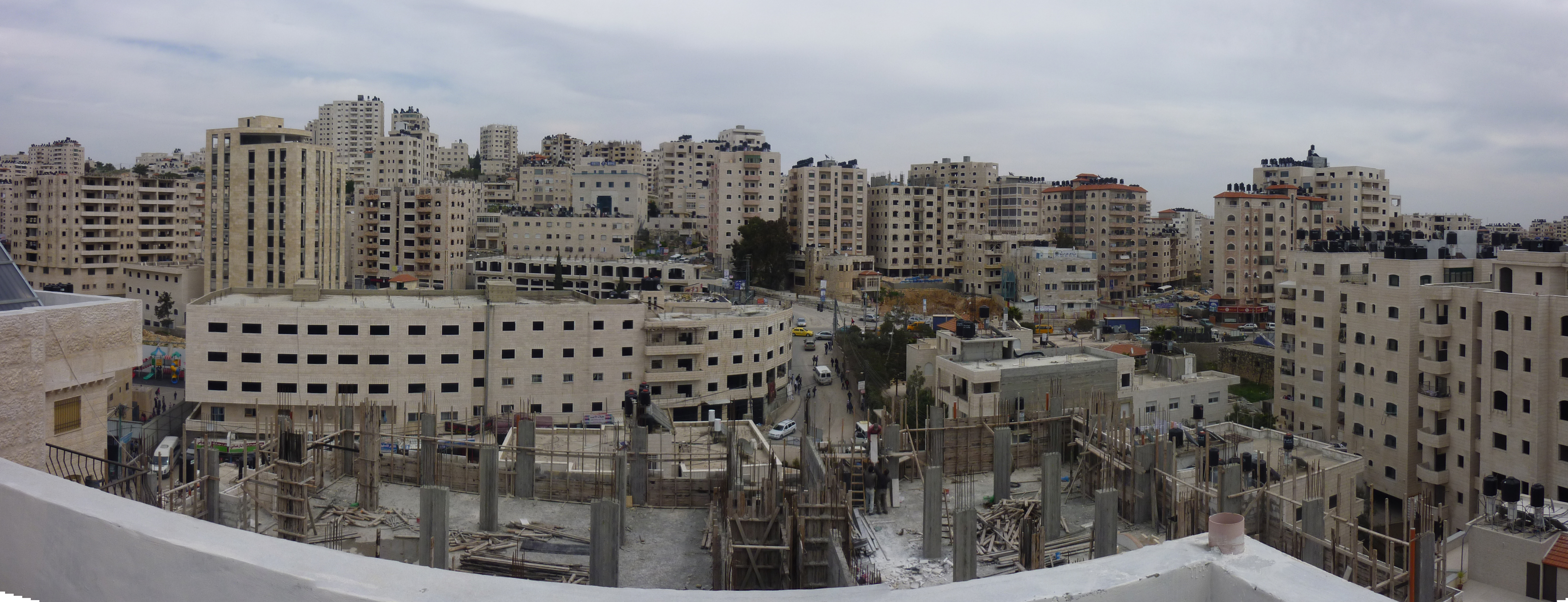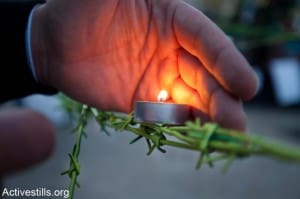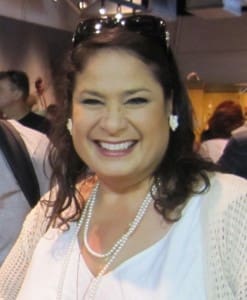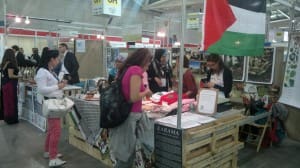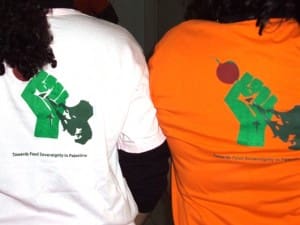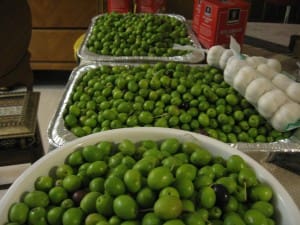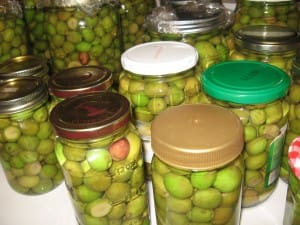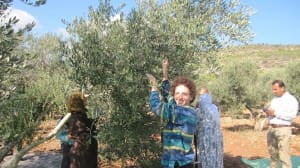It was not the first time the Israeli Occupation Forces waged an assault on the Gaza Strip. Over here in the middle of the Gaza Strip, it was outrageous. The sky was almost full of Israeli warplanes of various kinds. They flew as fast as they could, and sometimes hovered very low in order to bomb houses and their occupants. There were many kinds of Israeli warplanes used–helicopters, drones and jet fighters. It was hard to take a step outside my house due to the rockets that fell from the sky. All kinds of institutions got badly damaged or destroyed completely and most were at least partly damaged.
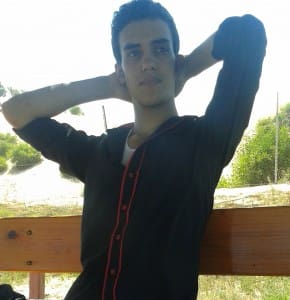
Israeli missiles fell randomly upon Al-Shojaiyah neighborhood, and every single person ran to the streets to seek cover, but there was no cover. Shrapnel spread everywhere; dozens of innocent civilians and animals were killed. Body parts were scattered. The Israeli army bombed over and over again as if it was a game. They came with their tanks and warplanes to murder whole families in cold blood not stopping for a second to realize that this family may have an infant who should be living and enjoying his childhood like Israeli infants and other infants in the world.
On July 19th, my family and I were about ready to have our dinner as the Israeli assault went on. My little sister, Shahid, was standing on a small chair by the window looking at how the beautiful horizon was covered with black thick smoke. A poisonous smell escalated with the smoke of bombed buildings and blew with the wind. My little sister and I couldn’t bear the smell of it, and I started to cough uncontrollably through my mouth and nose. I sprayed some perfume to change the smell of the air we were breathing that moment and it gave us some relief. Shahid went back to looking at the sunset when she saw something small flying towards us from far away.
“Come here, Ahmed, and look at that thing flying right toward me,” she pointed.
“Get inside and close the window, Shahid, before something bad happens,” I replied.
“I hope that flying thing is some super hero like Superman because I just know he can save people whenever they are in danger” she said, staying by the window.
“You must be crazy!” I answered.
Suddenly, she realized what she was seeing. She freaked out and started running all over the house screaming: “A rocket is breaking down the sky!”
My siblings ran to the east of the house to take a shelter, because by then we could hear a scary sound from above. I ran as fast as I could to open the window and confirm what she saw. I thought maybe the sound of the rocket was really the sound of warplanes passing over our house or hovering at low altitudes, but in fact it was a rocket dropping from a helicopter on to a specific target near my house. When I saw it, I left the window open and bent my whole body down toward the floor with my hands over my ears to alleviate the pressure a little bit after the explosion. A few seconds later, there was a massive explosion, and then a second one that shook my house fiercely. Everything was shaking and moving under our feet so I thought at first that my house was the one that had been bombed. However, it was our neighbor, a civilian, less than one block away.
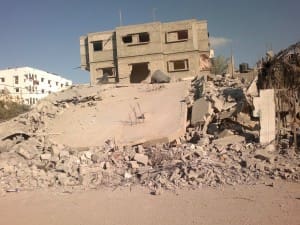
Ambulances came to get some injured and martyrs. My family went back to dinner and started to eat without hesitation even though the dinner was cold. I went bed, but whenever I tried to fall asleep, a dreadful sound of bombing awakened me. I was up until the sun rose.
When the morning came, there was no breakfast and no lunch because we had not been able to get out of the house to go shopping and buy some food. My father decided to take me along with him to risk walking in the street to go to the market. I was hungry, but I couldn’t say so to my father because I knew that he was hungry too, so I kept patient until we reached a supermarket. We relied on canned food for two reasons. First, there was no electricity after the electricity company had been targeted by Israeli artilleries; consequently, it wouldn’t do to keep fresh food inside the fridge. Second, canned food is easier to prepare quickly. I was already used to spending days without electricity meaning that there was no Internet to communicate with the outside world, no news to be heard on TV, no water in the rooftop tanks because the pump needs electricity, and no fresh food to be kept in the fridge. Only my cell phone’s radio kept me up to date with the breaking news, because it was charged on my father’s car battery.
Five days later, someone called my father’s cell phone and his facial expression changed. We were eating lunch so he didn’t say anything about the call.
“What’s wrong, Dad?” “Did something bad happen?” I asked.
He acted as if he didn’t hear me at first, so, I repeated my question with different words to get his attention. “What’s going on, Dad?” “Is there anything I can do to help you?” I asked.
“No my son, there is nothing you can do about it,” he said.
“Would you let me know then so we can find a solution?” I replied.
“I don’t know how to put this,” he started, “but Umm….” My dad was not able to say what happened directly in front of my family and especially not in front of my mom.
Later that day, he let us know in an indirect way that relatives from my mother’s side had been martyred that day by a Zionist air raid. When my mom heard, she fainted as he had feared, and she woke up with pain squeezing her heart. I tried to calm my siblings down and make them feel better by saying that God would grant them entry into paradise, but I couldn’t take control over their hearts because you just can’t control someone’s emotions. They kept crying because they were very close to the family, considering them brothers, friends and very good relatives molded all in one.
I called my uncle to express my condolences on the loss of his sons; he was heartbroken. My family decided to go to my uncle’s house to console him personally on his loss, so they went and stayed there until evening came. The Red Cross organization brought his body out of the rubble and handed him to his family during a ceasefire that lasted for only 12 hours. His family and mine went to the mosque to pray the funeral prayer. At first, I couldn’t get close to his body to say goodbye to him because I was crying.
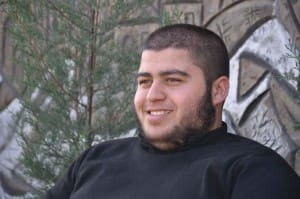
Finally, I kissed him on his head. We prayed and after that we took his body to bury it in the cemetery. Although I felt that I couldn’t handle it when I saw people holding his body up in the air to put it in that dark hole in the ground, I went with the flow and told myself I should be very proud of him, for he has the status of being a martyr. The day was almost over and what I thought of was despite the fact that Israel burns up and destroys our mosques, homes, schools, hospitals, and universities and murders our relatives, the Palestinian spirit of struggling for what is rightfully ours will always remain; in fact, we grow stronger each day we are treated with disrespect and denied our dignity, humanity and freedom.
The author:
Ahmed AlQattawi (19 years old) was born in Saudi Arabia but lived in Deir el Balah (Gaza) all his life. Ahmed says, “I like my major, English language and literature, because it makes me see the world from all perspectives.” His university, the Islamic University of Gaza, was bombed in the 2014 Israeli aggression as it had been in previous attacks.
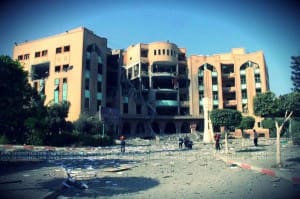
Ahmed says, “I have one lovely brother and four lovely sisters. My father teaches science and my mom doesn’t work outside of our house. I spend my spare time reading various kinds of books to acquire as much knowledge as I can. One funny talent I have is that I can make shapes out of paper with one hand tied behind my back. My dream was always to travel outside my town to study and then come back to my country to improve my community, but because of the unjust siege on the Gaza Strip and the shortage of funds, I have no idea when my dream will come true.”
